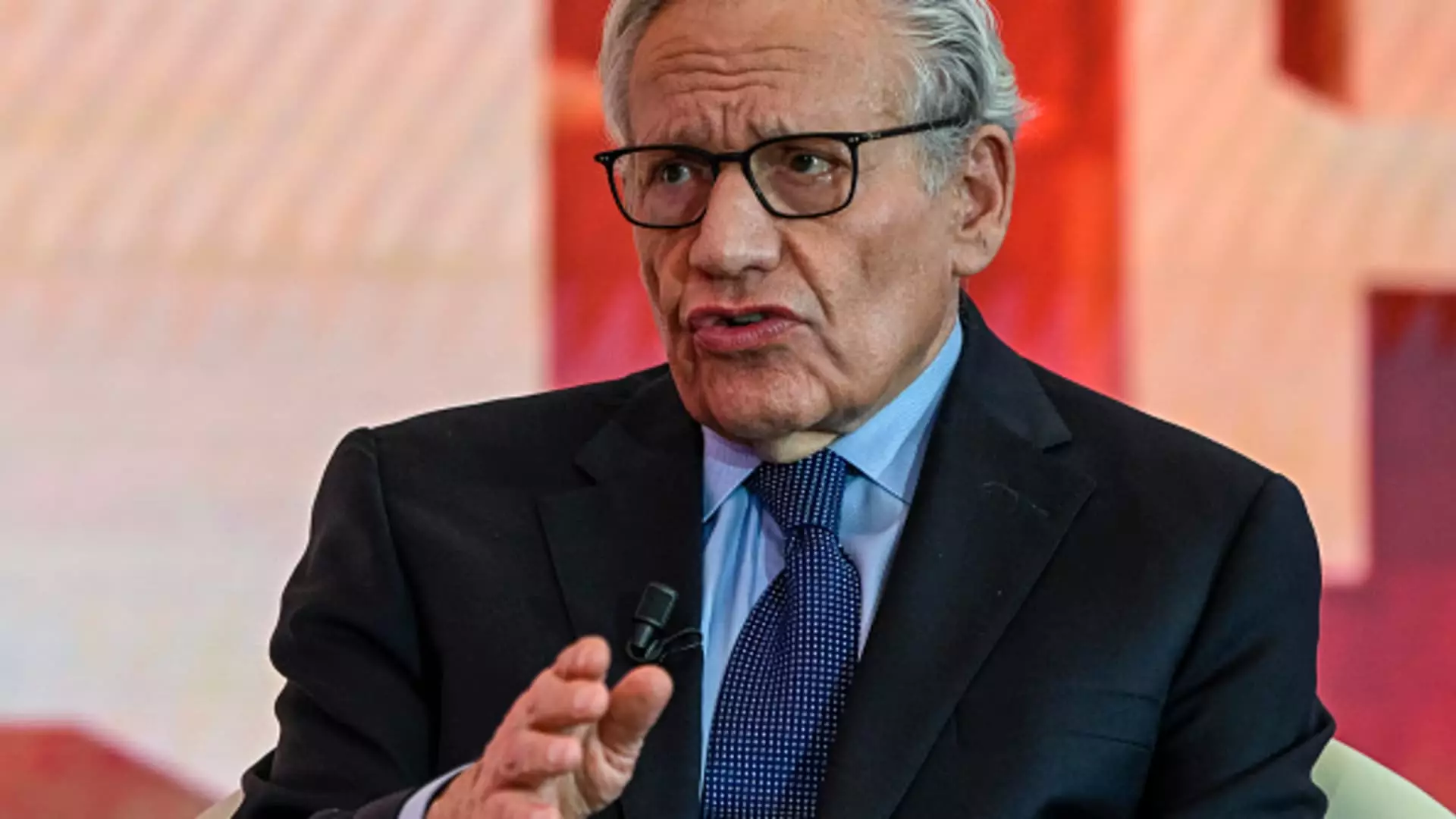The recent dismissal of Donald Trump’s nearly $50 million lawsuit against journalist Bob Woodward underscores a crucial reality in contemporary politics: the perilous intersection of power, law, and the free press. While the ruling might appear as a validation of journalistic rights, it also reveals how the powerful can attempt to manipulate legal frameworks to silence inconvenient truths. Trump’s case was, at its core, an effort to distort the narrative around his interviews—an attempt to monopolize control over how his words are used and perceived. Yet, the federal judge’s decision exposes the fragility of such attempts. It affirms the essential role of the press in holding power to account and underscores the importance of a legal system that resists being weaponized for political gains.
The core argument from Trump’s legal team centered on copyright claims—an unusual and arguably misguided tactic. By claiming ownership over his interview responses, Trump sought to extend his influence over the dissemination of information that was, by all evidence, gathered in the course of official duties. This misstep reveals a fundamental misunderstanding of the nature of presidential interviews, which historically serve the public interest rather than personal privilege. The judge’s ruling dismantled Trump’s claims convincingly, emphasizing that federal copyright law inherently limits a president’s ability to claim exclusive rights to interviews conducted during official functions. Moreover, the notion that a president could wield control over parts of journalism—particularly in a manner that curtails transparency—is alarming and dangerous for a democratic society built on an informed electorate.
While some might argue that this ruling is merely procedural, it touches on deeper issues of accountability. The idea that a sitting president can leverage the legal system to thwart scholarly and journalistic endeavors raises questions about the boundaries of executive privilege. The courts, in this case, correctly recognized that the public’s right to access authentic information must supersede attempts at suppression. The dismissal further highlights how the judiciary, when independent and well-informed, acts as a bulwark against executive overreach, defending the core principles of free speech and transparency that are vital to any healthy democracy.
The Illusion of Control and the Danger of Politicized Justice
Trump’s insistence on claiming authorship and control over interviews—despite clear conceptual and legal grounds to the contrary—reflects a broader narrative: the illusion of mastery over one’s image and narrative. By trying to assert copyright and monetary rights over remarks made during official duties, Trump was essentially attempting to rewrite the boundaries of presidential accountability. Such moves are symptomatic of a larger trend where powerful figures seek to manipulate laws to serve personal interests, often at the expense of public interests.
This case exposes the perilous tendency of politicized judicial processes to either dismiss or distort facts when they don’t align with partisan goals. Trump’s legal team’s assertion that the court was biased and that due process was overlooked reveals a classic strategy of deflection—dismiss, discredit, and distract. This approach undermines the integrity of the judiciary and prioritizes political narratives over justice. An impartial judiciary must resist such tactics and focus instead on substance, ensuring that legal protections are rooted in principle rather than partisanship. At stake is not just a legal victory or defeat but the very fabric of accountability in a democracy.
The implications extend beyond this single case. If a former president can wield legal claims as a shield against scrutiny—claims that are legally and constitutionally dubious—then the foundational principles of press freedom and transparent government are at serious risk. This case signifies the importance of maintaining the judiciary as a neutral arbiter—one that resists political manipulation and guards the rights of the public to information.
Reflections on a Politicized Legal Battle and its Broader Consequences
The attempt to monetize and control interviews conducted during one’s presidency reflects a fundamental misunderstanding—or perhaps a willful neglect—of the role of journalists and the public in a democracy. Woodward’s work, which involved extensive interviews with Trump, exemplifies investigative journalism at its best: uncovering truths that powerful figures prefer to keep hidden. Dismissing Trump’s claims and affirming the legitimacy of journalistic integrity reaffirms a crucial truth: the press must remain free from manipulation and censorship, especially by those in power.
This episode also forces us to confront the dangerous precedent set when the law is used selectively. If powerful individuals believe they can shape legal outcomes by claiming copyright or other rights to their words and deeds, the very essence of accountability erodes. It becomes increasingly difficult for the public to trust that their leaders are held responsible when attempts to control the narrative are met with legal defenses that twist the law into a tool of suppression.
From a center-left perspective, this case underscores the importance of safeguarding journalistic independence and resisting authoritarian tendencies. While the judiciary ultimately upheld these principles, the attempted legal assault on Woodward’s work demonstrates ongoing vulnerability. Democratic societies must remain vigilant in protecting freedom of the press—not just from overt violence or censorship, but also from subtler, institutionalized attempts at control that threaten to silence inconvenient truths. Ensuring transparency isn’t merely about legal victories; it’s an ethical imperative to prioritize truth over power, especially when that power seeks to distort or dismiss it for personal benefit.


Leave a Reply